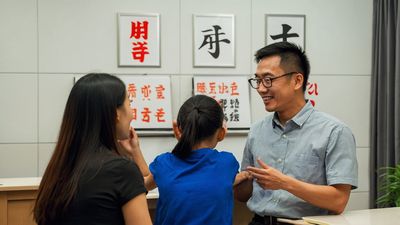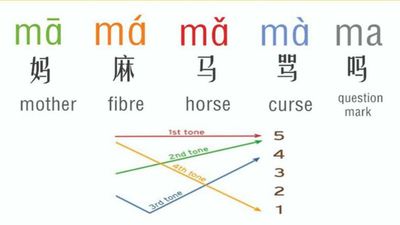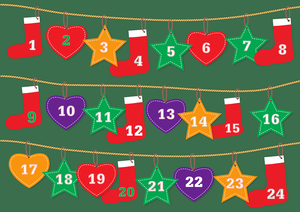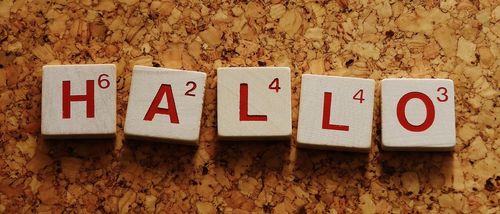Good Morning in Chinese: 20 Diverse Ways to Greet the Day
Explore 20 unique ways to say 'Good Morning' in Chinese, from casual to formal greetings. Dive into the richness of Chinese language and culture with diverse morning salutations
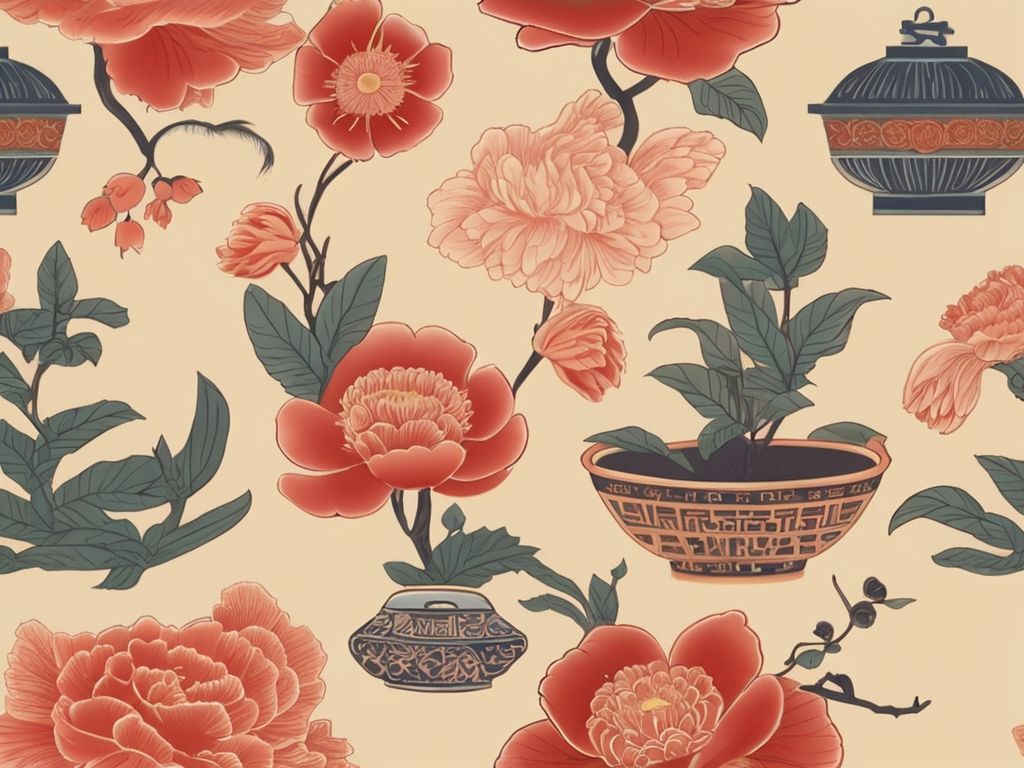
Good Morning in Chinese: 20 Diverse Ways to Greet the Day
Waking up to a new day in China, the air buzzing with the energy of morning activities, there's no better way to blend into the rhythm of local life than greeting someone with a cheerful "Good morning." In Mandarin Chinese, this greeting transforms into "早上好" (Zǎo shàng hǎo), a phrase that carries the freshness of the morning and the warmth of a polite greeting.
"早上好" (Zǎo shàng hǎo): Good morning
"早上好" breaks down into "早上" (zǎo shàng), meaning "morning," and "好" (hǎo), meaning "good." It's the melody of these words together that sings a greeting, conveying both respect and good wishes to the person you're speaking to. Imagine stepping out, the city or countryside coming alive with the day's promise, and sharing this simple yet powerful phrase with those you meet.
Mastering the Pronunciation
Pronouncing "早上好" with confidence is your key to unlocking smiles and nods of appreciation. Here's how to get it just right:
• 早 (Zǎo): This syllable falls with a third tone, which starts at a mid pitch, dips down, then rises again, almost like the trajectory of a gentle wave. Think of it as the vocal equivalent of a respectful nod, acknowledging the start of a new day.
• 上 (Shàng): "上" takes on a fourth tone, a sharp, falling pitch, as if decisively pointing out the morning in question. It's pronounced like you're giving a command, strong and clear.
• 好 (Hǎo): Ending the greeting, "好" is pronounced with a third tone, similar to "早," but this time, it carries the warmth of the word "good," lifting the end of the phrase with a positive note.
Variations of "Good Morning"
Casual and Friendly: "早" (Zǎo)
For a more casual and breezy greeting, you might opt for just "早" (Zǎo). It’s the equivalent of saying "Morning!" in English. This shortened version sheds the formality but keeps the warmth, perfect for greeting friends, colleagues, or neighbors in less formal settings. Its simplicity and brevity make it a popular choice among the younger generation and in casual, everyday interactions.
The Cheerful "早安" (Zǎo ān)
"早安" (Zǎo ān), translating to "Good morning" or literally "Morning peace," adds a touch of cheerfulness and well-wishing to the start of the day. It’s a bit more formal than just "早" but carries a similar warmth, making it suitable for a wide range of situations. This variation is particularly favored for its lyrical quality and the peaceful wishes it conveys.
Regional Varieties: Embracing Local Flavor
As you traverse the vast landscapes of China and interact with its diverse cultures, you might encounter regional variations of "Good morning." These local flavors of the greeting reflect the linguistic diversity of the country and offer a wonderful opportunity to connect on a more personal level with the people you meet. For instance, in Cantonese-speaking regions like Hong Kong and Guangzhou, you'll hear "早晨" (Jóusàhn) as a common morning greeting.
Tips for Using Variations of "Good Morning"
1. Match the Context: Choose your greeting based on the setting and your relationship with the person. "早" is great for a quick, friendly hello, while "早上好" suits more formal or first-time interactions.
2. Listen and Learn: Pay attention to how native speakers greet each other in the morning. This real-world observation can guide you on which version of "Good morning" is most appropriate in different contexts.
3. Embrace Local Phrases: If you're traveling or living in a specific region, learn the local way of saying "Good morning." Using regional expressions not only shows respect for local culture but also helps deepen your connection with the community.
Cultural Etiquette and Response
In Chinese culture, greetings are not just a formality but a manifestation of respect, interest, and the value placed on relationships. Whether it's a casual "早" (Zǎo) among friends or a more formal "下午好" (Xiàwǔ hǎo) in professional settings, each greeting carries weight. The act of greeting acknowledges the other person's presence and signifies a moment of connection.
Crafting the Perfect Response
Responding to greetings in a way that reflects understanding and respect for Chinese cultural norms can strengthen bonds and foster goodwill. Here are some key considerations:
1. Reciprocate Appropriately: The simplest way to respond to a time-specific greeting is to echo it back. If someone says "早上好" (Zǎo shàng hǎo), replying with the same "早上好" shows both acknowledgment and mutual respect.
2. Inquire Further: Following the initial greeting with a polite inquiry about the person's well-being shows care and interest. A common follow-up is "你好吗?" (Nǐ hǎo ma?, How are you?), to which a polite and modest response would be "我很好, 谢谢. 你呢?" (Wǒ hěn hǎo, xièxiè. Nǐ ne?, I'm very good, thank you. And you?).
3. Use Formal Titles When Appropriate: In more formal contexts or when addressing elders or people in higher positions, include their title or surname in your response to show respect. For example, "王老师, 早上好" (Wáng lǎoshī, zǎo shàng hǎo, Good morning, Teacher Wang).
Understanding the Subtleties of Interaction
• Non-verbal Cues: Pay attention to non-verbal cues such as nodding, smiling, and eye contact, which can convey respect and attentiveness.
• Sensitivity to Context: The context of the greeting—whether it's in a casual, family, or formal setting—influences both the choice of greeting and the response. Mimic the level of formality and warmth demonstrated by the greeter.
• Avoiding Over-familiarity: Until a close relationship is established, it's prudent to maintain a level of formality and respect in both greetings and responses, avoiding overly familiar terms or jokes.
20 ways to say good morning in Chinese
1. 早上好 (Zǎo shàng hǎo) - Standard "Good morning."
2. 早 (Zǎo) - A casual and brief "Morning."
3. 早安 (Zǎo ān) - "Good morning," with a touch of warmth.
4. 上午好 (Shàngwǔ hǎo) - Good morning, used until noon.
5. 早晨好 (Zǎo chén hǎo) - A polite way to say "Good morning."
6. 吃早饭了吗? (Chī zǎofàn le ma?) - "Have you had breakfast?" A common morning greeting that shows care.
7. 新的一天好 (Xīn de yī tiān hǎo) - "Have a good new day."
8. 愿你早上好 (Yuàn nǐ zǎo shàng hǎo) - "Wishing you a good morning."
9. 祝你今天有个好开始 (Zhù nǐ jīntiān yǒu gè hǎo kāishǐ) - "Wishing you a good start today."
10. 美好的一天 (Měihǎo de yītiān) - "A beautiful day," implying a good morning.
11. 早上好啊 (Zǎo shàng hǎo ā) - "Good morning," with an added "啊" for emphasis or friendliness.
12. 阳光明媚的早晨 (Yángguāng míngmèi de zǎochén) - "A bright and sunny morning."
13. 又是元气满满的一天 (Yòu shì yuánqì mǎn mǎn de yītiān) - "Another day full of energy," a positive morning greeting.
14. 早上起床啦 (Zǎo shàng qǐchuáng la) - "Up in the morning," casual and playful.
15. 清晨好 (Qīngchén hǎo) - "Good early morning," for very early greetings.
16. 起床啦,美好的一天开始了 (Qǐchuáng la, měihǎo de yītiān kāishǐ le) - "Get up, a beautiful day begins."
17. 祝你早日康复 (Zhù nǐ zǎorì kāngfù) - "Wish you a speedy recovery," a thoughtful morning greeting for someone who is unwell.
18. 让我们迎接新的一天 (Ràng wǒmen yíngjiē xīn de yītiān) - "Let's welcome the new day," great for group settings.
19. 希望你的一天充满阳光 (Xīwàng nǐ de yītiān chōngmǎn yángguāng) - "Hope your day is filled with sunshine."
20. 早上好,我的朋友 (Zǎo shàng hǎo, wǒ de péngyǒu) - "Good morning, my friend," for a personal touch.



